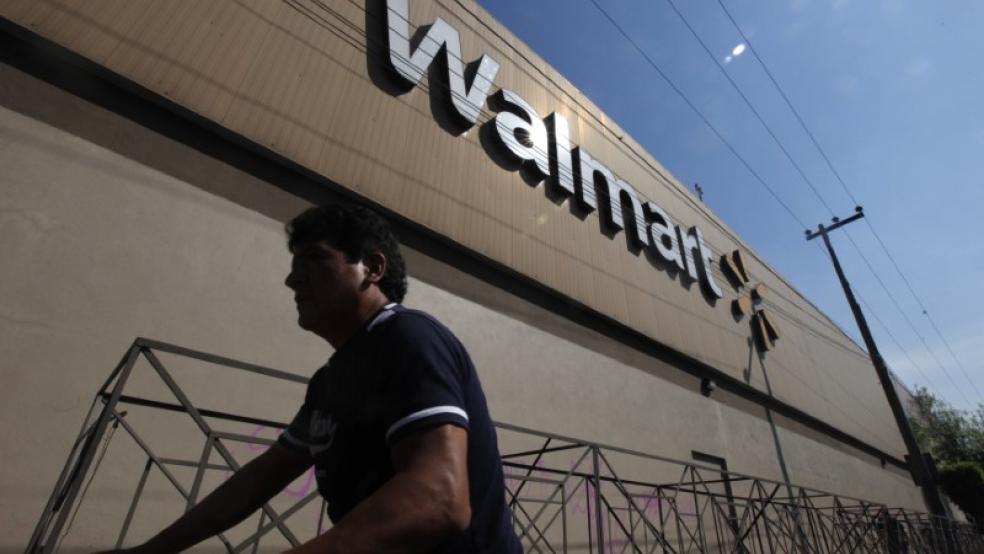(Reuters) - Wal-Mart Stores Inc said it would raise entry-level wages to $9 an hour, a 24 percent increase from the U.S. minimum wage that some employees now earn, succumbing to longstanding pressure to pay its workforce more.The world's largest retailer said the increases would cost it $1 billion and impact 500,000 employees, or about 40 percent of its workforce, although the hike falls short of what some labor groups have been agitating for.The move comes amid a growing debate in the U.S. over the widening gulf between the rich and low-income workers. Wal-Mart has been a prime target of critics who say its low-wages and inflexible scheduling are a big part of the problem. The White House praised the move, pointing out that 17 states have already moved to boost their minimum wages above the federal level of $7.25 an hour and renewing its call on the Republican Congress to boost the wage on a national level."But given their recalcitrance on this because Republicans keep blocking it, we’re going to continue to keep making progress in other ways,” White House spokesman Eric Schultz told reporters. Chief Executive Doug McMillon, who took the post about a year ago, told reporters on a media call that he wanted Wal-Mart to be a "ladder of opportunity" for workers and that the investments in wages would ensure employees are "highly engaged in our business." Investors, worried about the bottom-line implications even after the retailer reported better-than-forecast profits, pushed Wal-Mart's shares down 2.9 percent to $83.77 in afternoon trade, making it the biggest decliner on the Dow Jones Industrial average <.dji>.The company acknowledged that the wage bumps would dent profits this year but said they would improve customer service over the longer term, addressing issues that have in part been blamed on low wages, as well as a paucity of workers at its stores.'WAR FOR TALENT'Wal-Mart said its hourly full-time and part-time workers will earn at least $9.00 an hour, or $1.75 above the current federal minimum wage, starting in April. That will increase to at least $10.00 an hour by Feb. 1, 2016 for workers now on its payroll.The increase will mainly affect Wal-Mart's lowest-paid workers. The average hourly wage for full-time workers will rise to $13 from $12.85 this year, while the average for part-time workers will rise to $10 from $9.48, Wal-Mart said.Labor groups welcomed Wal-Mart's decision as a delayed step in the right direction."For years Walmart has kicked and screamed that raising wages was not a feasible business model," AFL-CIO President Richard Trumka said in a statement. "Workers everywhere are glad to see Walmart change their view." Others reiterated their call for it to pay least $15 an hour, which they say represents the minimum "living wage" for U.S. workers.The changes by Walmart "are inadequate for the hundreds of thousands of employees who struggle to support themselves and their families," Christine Owens, executive director of the National Employment Law Project, said in a statement.The step by the world's largest retailer may nevertheless prompt other low-wage employers to follow suit, some analysts said. "Wage increases could be imminent for other companies," Cowen and Company analyst Oliver Chen said in a note. In fact, Wal-Mart's wage hike follows similar moves at other consumer goods companies. A year ago Gap Inc set its minimum at $9 an hour and pledged to raise that to $10 in 2015. And more recently, Panera Bread Co told investors this month that it was paying higher wages across the board, citing a "war for talent." Wal-Mart's $1 billion program includes changes to staff training to help workers advance their careers. It said it was working on a scheduling system that would make it easier for employees to set their hours, targeting another longtime complaint of labor activists.McMillon did not disclose how much average wages would increase next year but expressed confidence the investment would eventually pay off with increased traffic to its stores.Wal-Mart also reported a better-than- expected fourth-quarter profit, helped by lower U.S. gas prices, which put more money into consumers' pockets and led to increased trips to Wal-Mart stores.Same-store sales in the United States rose 1.5 percent. Analysts on average had forecast an increase of 0.7 percent, according to Consensus Metrix.Wal-Mart, however, cut its sales forecast for the year ending January 2016, citing a strong dollar. The retailer said it now expected sales to increase 1-2 percent, below its previous forecast of 2-4 percent.It also forecast earnings of $4.70-$5.05 per share, below the average analyst estimate of $5.19. Net profit attributable to Wal-Mart rose 12 percent to $4.97 billion, or $1.53 per share, for the quarter.Excluding items, Wal-Mart earned $1.58 per share, according to Thomson Reuters I/B/E/S.Total revenue rose 1.4 percent to $131.57 billion.Analysts on average had expected earnings of $1.53 per share on revenue of $132.35 billion. (Reporting by Sruthi Ramakrishnan in Bengaluru and Nathan Layne in Chicago; Additional reporting by Emily Stephenson in Washington; Editing by Saumyadeb Chakrabarty and Christian Plumb)

